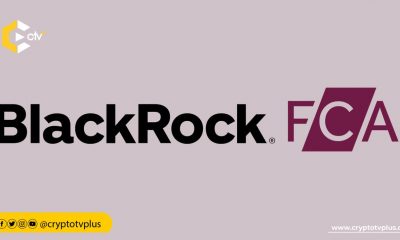News
BlackRock announces cash-driven Bitcoin ETF: IBIT

BlackRock’s much-anticipated spot bitcoin exchange-traded fund (ETF) took a significant step forward as it received its official ticker, IBIT, in the latest filing with the Securities and Exchange Commission (SEC).
The filing, submitted on Monday, also shed light on the fund’s creation and redemption mechanism, indicating a potential shift toward a cash redemption model.
The filing stated, “The Trust issues and redeems Baskets continuously. These transactions will take place in exchange for cash. Subject to the In-Kind Regulatory Approval, these transactions may also take place in exchange for bitcoin.”
This move towards a cash redemption model prompted Bloomberg Intelligence analyst Eric Balchunas to note, “BlackRock has gone cash only,” signaling a notable development in the ongoing discussions with SEC officials.
While BlackRock appears to lean towards an “in-kind” redemption model for greater portfolio management flexibility, the SEC seems to favor a cash model, requiring immediate sale of bitcoin for cash redemption.
Notes from recent engagements with regulatory bodies reveal that companies such as BlackRock and Fidelity are actively addressing the complexities of the redemption process associated with a spot bitcoin ETF.
Looking into the industry, while there was a huge surge in bitcoin ETF application in 2023, there has also been reapplication with multiple firms such as Ark 21Shares and WisdomTree, filing amended S-1 documents for their proposed spot Bitcoin funds.
Despite the SEC’s denials citing fraud concerns, there is a glimpse of hope in the market hinting at a potential approval soon.
As of December 2023, the US Securities and Exchange Commission (SEC) has not yet approved any Ethereum ETF applications.
The SEC has postponed its decision on several Ethereum ETFs, including those from Ark Invest/21Shares, VanEck, Invesco Galaxy, Hashdex, and Grayscale, with the final decision date ranging from February to May 2024.
The SEC has previously approved an Ethereum futures-based ETF, but it has not yet approved a spot or mixed-type product.
The SEC’s delay in approving Ethereum ETFs has been attributed to concerns about market manipulation, custody, and investor protection.
It has also opened the door for public input on Ethereum ETFs, indicating that it is seeking feedback from stakeholders before making a final decision.
Despite the delays, the demand for Ethereum ETFs remains high, with investors seeking exposure to the growing Ethereum ecosystem and its native cryptocurrency, Ether.
Read also; NEWSEthereumPoW dissolves core development team
























